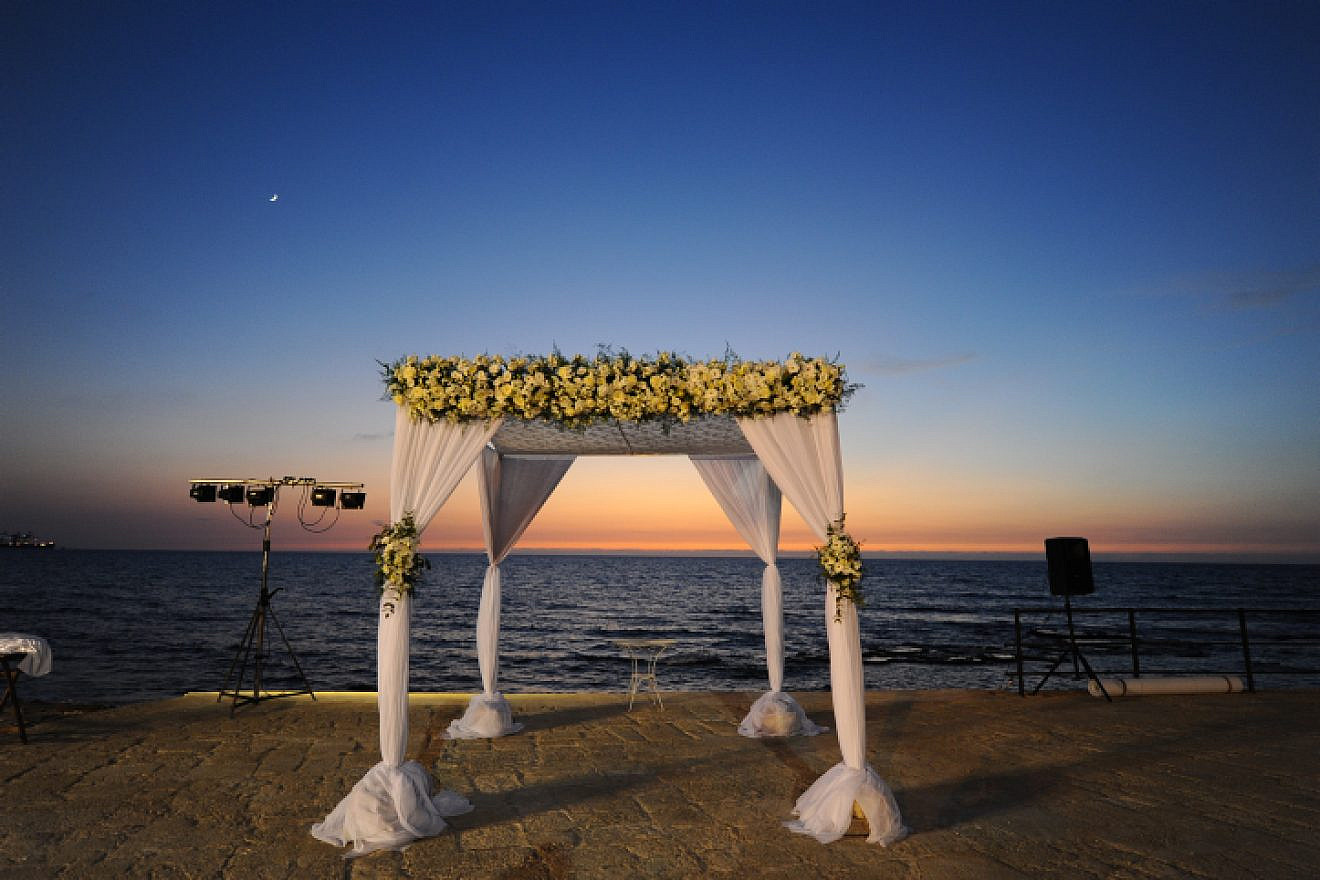Writer Jennifer Cox recently published an article about her decision to raise her family Jewish despite the outpouring of antisemitism since Oct. 7. The piece outlines many of the choices she and her husband have made through the years. She speaks of a deep connection to the Jewish people and how she’d never go back on her decisions despite the fears for her family’s safety. But there’s just one problem. She, and in all likelihood her children, are not Jewish.
Cox is part of what she termed an “interfaith” marriage. Her husband is of Ashkenazi Jewish descent, but she is a lapsed Catholic. While it’s true, as she points out, Hamas would not distinguish her children from any other Jewish children, decisions of Jewish law are not based on our enemies’ behavior.
Judaism is clear about issues of intermarriage and conversion. One cannot will himself or herself into being Jewish; lineage is transmitted through the maternal line. I do not point this out to be cruel or insensitive. In truth, Cox is probably raising her children with a stronger sense of Jewish identity than many secular Jews. I say these things because the majority of the Jewish world—even a good portion of the liberal community—does not consider people in this situation Jewish. Only Reform and Reconstructionist Judaism have embraced patrilineal descent.
Cox also outlines how everything she and her husband have done to raise their children has been a choice. Since she is not Jewish, they needed to opt in to each and every aspect of their family’s religious expression—from brit milah to celebrating Shabbat. She alluded to this element of choice as if it were a unique badge of honor. However, the reality is that such choices have been true for every Jew throughout history.
Every Jewish person, even those born Jewish, has had to wrestle with his or her relationship to the Divine. We’ve all had to decide how our Judaism will be expressed on a day-to-day basis as individuals, as families and as communities. But what Cox doesn’t seem to realize is that she’s made a fundamental decision for herself and her children. If none of them have converted, then none of them are Jewish.
I help people choose to join Am Yisrael on a regular basis. I sit on a beit din (“religious court”) with two other rabbinic colleagues in Israel. We have converted hundreds of people from around the world. Most of them are Israelis who were unaware of their religious status until they reached army service. Many Russian immigrants have just one Jewish parent, and only upon enlisting are they informed that they require conversion.
To watch people, even those who’ve practiced Judaism their entire lives, formally become part of the Jewish community is inspiring. The av beit din (head of the court, or literally “father” of the court) has certain protocols for each convert. Just before they accept the yoke of heaven and become obligated in the mitzvot (“commandments”), he asks them if they fully understand the commitment they are about to make. He tells them if they stop the process now, they could enjoy a ham-and-cheese sandwich and no one would fault them for it. But once they come out of the mikveh, they are obligated in all the mitzvot just as someone who was born a Jew.
More important than that, he points out that conversion is a one-way street—that an individual will always be Jewish from this point on, even if that person changes his or her mind. A better cultural reference is from the Eagles’ song “Hotel California”: Once you convert, “You can check out, but you can never leave.” And lastly, he reminds them of the prevalence of antisemitism. “Knowing all this, do you still want to become Jewish?” he asks. Their affirmative response never ceases to amaze me.
But there are times when things don’t go as planned. About six months ago, a family came from Europe to convert with our court—two parents, a son and a daughter. The children were in their 20s at the time. English was not their first language, so the daughter served as a translator. The day consisted of the conversion, and just afterwards, the parents were to be married, as is often done.
As we began the proceedings, the daughter announced that she would not be converting with the rest of the family. We were shocked. “Why not?” the av beit din inquired. She answered: “When we arrived in Israel, everyone else said they felt as if they’d finally come home. I didn’t feel the same way, and this is a big decision. I don’t want to take this step unless I’m certain. Maybe one day I’ll return and convert, but I’m not ready to do it now.”
I’ve never felt more emotionally conflicted. On the one hand, I couldn’t have been prouder of her. Even after all her years of study, she was able to realize and respect the gravity of the process. But perhaps because of that, I felt that the Jewish people were missing out on such a special person who could have been among us. As her parents stood under the chuppah later that day, with the hills of Israel in the background, the daughter and many of us shed a tear for the family’s realization of their years-long dream.
Needless to say, the process of conversion is not to be taken lightly and may not be for everyone. And to the latter I say, just as I did to the daughter of this family, we understand and respect your decisions. If the antisemitic fallout post-Oct. 7 has taught us anything, it’s that we need non-Jewish allies in the world just as much as strong converts.


























